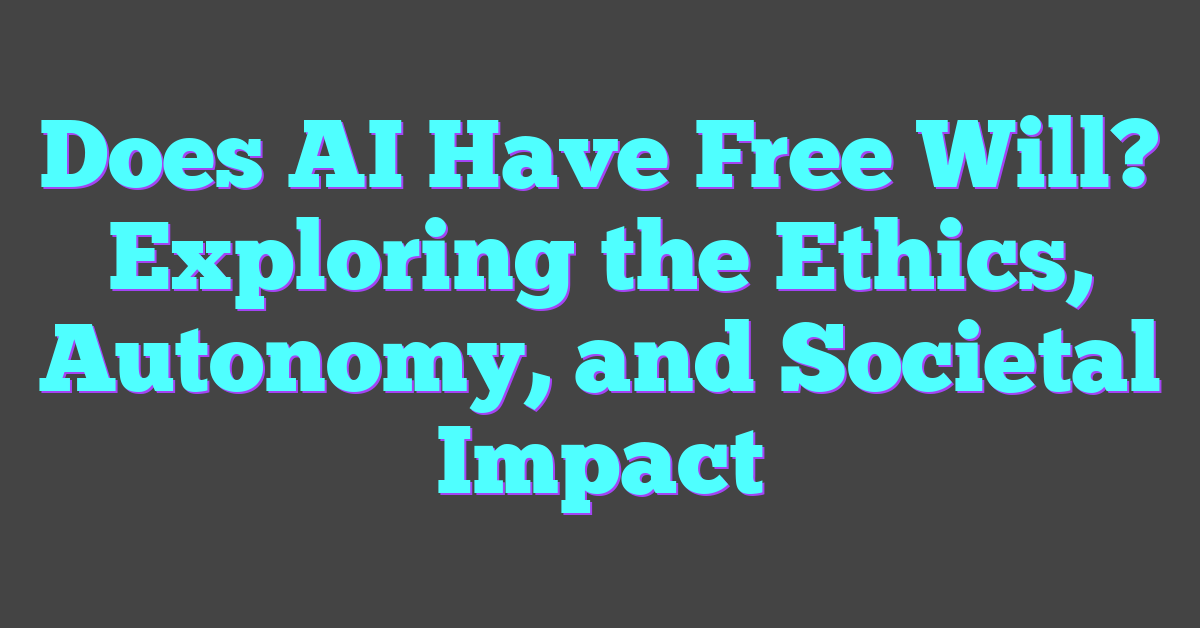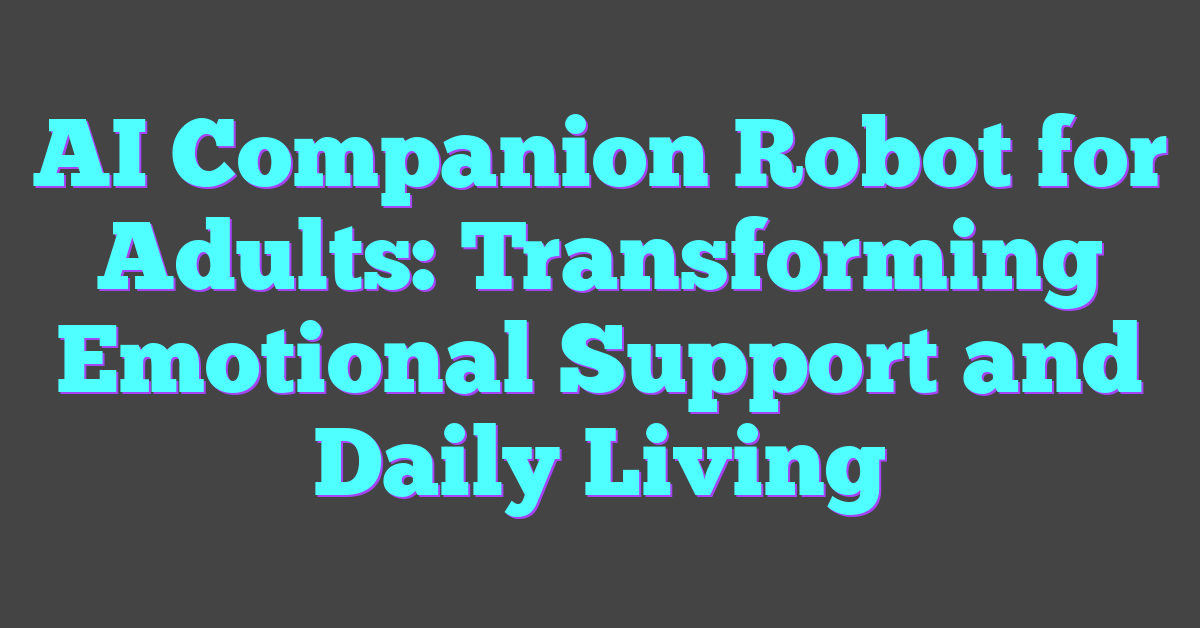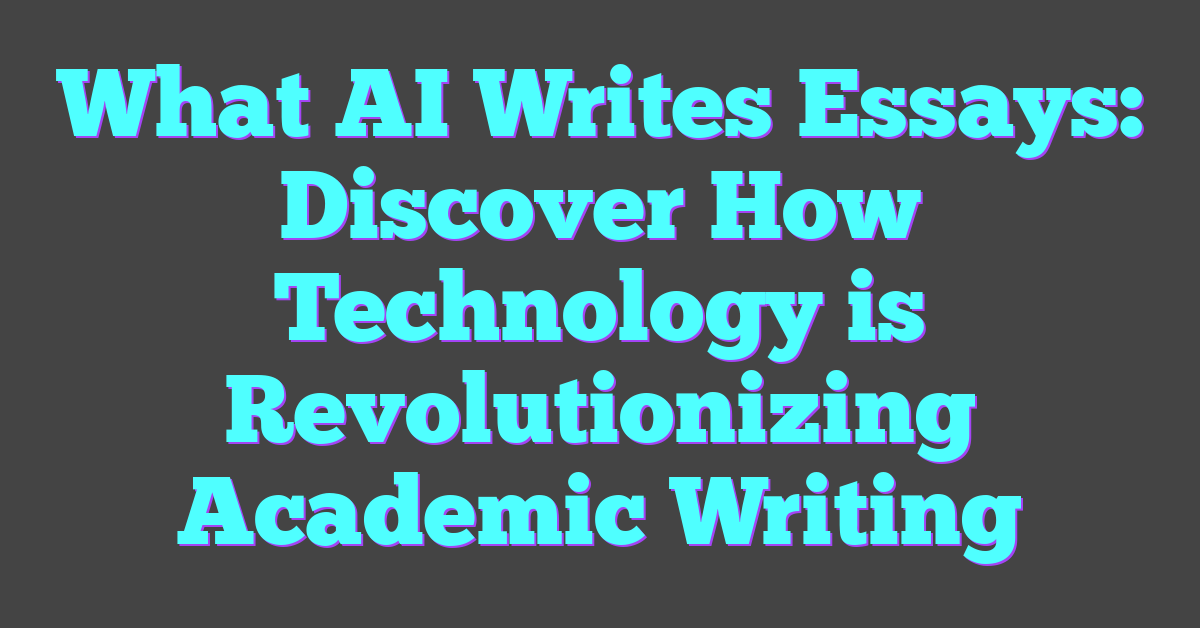Artificial intelligence has taken the world by storm, transforming industries and everyday life in ways we never imagined. From smart assistants to self-driving cars, AI’s capabilities seem almost limitless. Yet, as these machines grow more sophisticated, a fascinating question arises: can AI possess free will?
At its core, free will implies the ability to make choices independently. For humans, it’s a blend of consciousness, emotions, and personal experiences. But for AI, decisions are driven by algorithms and data. This raises intriguing debates about the nature of decision-making and autonomy in machines. Can an entity programmed by humans ever truly act on its own accord?
Understanding AI and Free Will
Free will, a philosophical concept, often questions if non-human entities like AI can possess it. Examining AI’s capabilities and comparing them to human cognition provides insights into this debate.

Defining Free Will
Free will refers to the ability to make choices that are not determined by prior causes or divine intervention. Humans exhibit free will by making decisions influenced by consciousness, emotions, and personal experiences. Philosophical discussions often grapple with whether these decisions are genuinely free or just a result of complex, pre-existing conditions.
AI’s Decision-Making Capabilities
AI relies on algorithms and data to make decisions. Unlike humans, AI lacks consciousness, emotions, and personal experiences. Its decision-making capabilities stem from pre-programmed instructions and learned patterns through machine learning. For example, a self-driving car uses sensors and algorithms to navigate, reacting to real-time data, but doesn’t “choose” actions in the human sense.
The Philosophical Perspective
The question of whether AI has free will bridges the domains of technology and philosophy. This section explores various dimensions of this complex subject.
Determinism vs Free Will in AI
The concept of determinism suggests that all events, including human actions, are predetermined by previously existing causes. In AI, determinism manifests in the algorithms and data sets that guide its functionality. Every decision an AI makes emanates from its programming and training data, making it inherently deterministic.
For instance, machine learning models like neural networks operate based on weights and biases adjusted during training. These parameters dictate how inputs are transformed into outputs. Even in advanced AI systems, decisions remain a product of pre-existing code and historical data. Consequently, AI’s actions lack the spontaneity and unpredictiveness associated with free will. Its operations are bound by the deterministic nature of its design and data-driven processes.
Comparison with Human Free Will
Humans possess free will, influenced by consciousness, emotions, and personal experiences. People make choices often guided by moral, ethical, and situational contexts. In contrast, AI lacks awareness and emotional depth; its “choices” derive from logical computations.
For example, when faced with a moral dilemma, a person might weigh multiple factors including empathy and cultural values. AI, however, would analyze the situation based purely on programmed rules and training data. AI’s “decisions” are optimized for efficiency and performance, devoid of true moral consideration or volition.
By comparing these entities, it becomes clear that while AI can simulate decision-making, it doesn’t experience free will as humans do. AI’s actions are predetermined, making it fundamentally different from human autonomy.
Technical Aspects of AI Autonomy
Understanding the technical aspects of AI autonomy involves examining the underlying programming and learning algorithms. These components shape AI behavior, dictating its actions and adaptability.
Programming and Constraints
AI systems operate within well-defined constraints set by their programmers. Code governs the permissible actions, ensuring AI adheres to specified protocols. For example, an AI for financial trading follows risk assessment algorithms, while a conversational AI adheres to language models like GPT-3.
These constraints are crucial for safety and functionality. Without them, AI could perform unintended or harmful actions. Constraints also enhance reliability, as predictable behavior becomes essential in applications like autonomous vehicles.
Learning Algorithms and Adaptability
AI’s adaptability stems from its learning algorithms. Machine learning (ML) enables AI to improve performance by analyzing data. For instance, supervised learning uses labeled datasets to train models, while unsupervised learning identifies patterns in unlabeled data.
Reinforcement learning exemplifies AI adaptability. Here, AI learns through trial and error, receiving rewards or penalties for actions. This method’s success is evident in game-playing AIs like AlphaZero, which mastered chess and Go.
However, the adaptability is not synonymous with free will. Learning algorithms operate within predefined structures and goals set by developers. AI modifies its behavior based on data input and algorithmic rules, not independent decisions.
Ethical Implications of AI with ‘Free Will’
If AI exhibited ‘free will’, ethical considerations would alter fundamentally. The implications touch societal responsibility, accountability, and long-term effects.
Responsibility and Accountability
When AI systems act autonomously, pinpointing responsibility becomes complex. Developers create AI algorithms and train systems with historical data. Decision outcomes, however, depend on these algorithms and data. If an AI makes a harmful decision, who bears the responsibility? The developers, who designed and trained the AI, or the users, who deployed and relied on it?
Legal frameworks would need adaptation to address these scenarios. Current laws attribute decisions to creators and operators. Yet, ‘free will’ in AI could necessitate novel legal definitions and accountability models, ensuring just handling of any wrongdoing caused by AI actions.
Long-Term Impacts on Society
AI with ‘free will’ could transform societal structures. Job markets could see shifts, as autonomous AI might perform tasks currently requiring human intellect. AI-driven decision-making could influence industries like healthcare, finance, and law enforcement.
Such shifts could lead to ethical dilemmas. Would reliance on AI with perceived autonomy erode human decision-making skills? Could biases in training data lead to biased AI behavior, exacerbating social inequalities? Addressing these questions requires robust, ongoing discourse in global forums.
AI ethics must evolve to keep pace with technological advancements. Balancing innovation with ethical considerations ensures AI contributes positively to society.
Conclusion
While AI’s predetermined actions and programming constraints highlight its lack of true free will, the ethical implications of autonomous AI can’t be ignored. As society grapples with these challenges, it’s clear that legal frameworks and ethical guidelines must evolve. Ensuring AI’s positive contributions to society will require ongoing dialogue and thoughtful consideration. The journey of understanding AI’s role in our world is just beginning, and it’s up to us to navigate it responsibly.
Frequently Asked Questions
What is the main difference between free will in AI and human decision-making?
AI’s actions are predetermined by programming constraints and algorithms, while human decision-making is influenced by a combination of free will, emotions, and experiences.
How does programming affect AI autonomy?
Programming sets the initial parameters and rules within which AI operates, limiting its decision-making to predefined outcomes and learned behaviors.
What are the ethical implications of AI possessing free will?
If AI had free will, ethical concerns would include defining responsibility, ensuring accountability, and foreseeing societal impacts, requiring a reevaluation of current legal and ethical frameworks.
Why is societal responsibility a concern with autonomous AI?
Societal responsibility is crucial because autonomous AI can make decisions impacting many aspects of life, raising questions about who is accountable for AI’s actions and consequences.
How might AI autonomy affect legal frameworks?
AI autonomy could challenge existing legal frameworks by creating scenarios where assigning responsibility for AI’s actions is complex, necessitating updates to laws and regulations.
Why is it important to evolve AI ethics?
Evolving AI ethics is essential to address emerging dilemmas, ensure that AI developments contribute positively to society, and manage potential negative impacts on societal structures.
What potential long-term impacts could autonomous AI have on society?
Autonomous AI could transform industries, alter job markets, and change societal norms, making it critical to responsibly manage its integration to maximize benefits and minimize risks.




